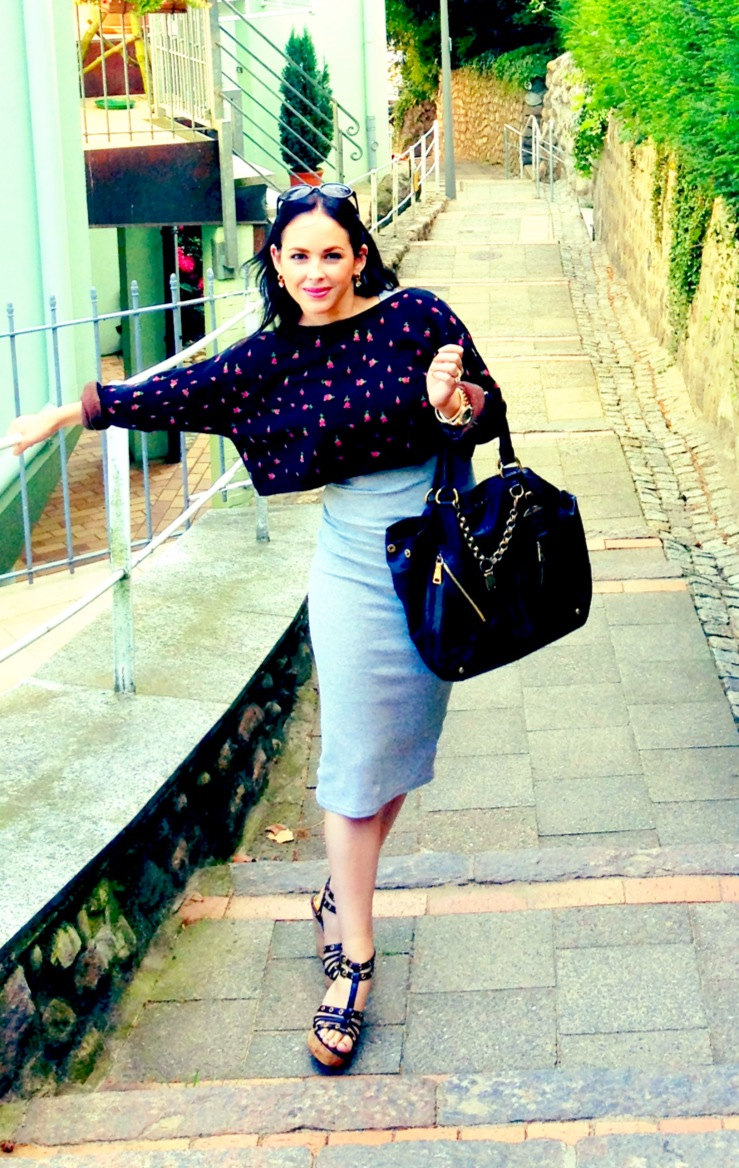My first trip to Hamburg’s famous Reeperbahn was a bit of shock. I think I can more accurately call it culture shock now though, as I look back at my reaction to the “sinful mile”. Having only been in Hamburg for a few days, after spending the summer in Canada and living the previous two years in Switzerland, the large German city certainly took some getting used to. Specifically the Reeperbahn, with its boldly lit sex shops and strip clubs, mixed in with typical touristy pubs, theaters, and a cop shop; at first glance it was all both amusing, but also confusing. Amusing were the map wielding, walking-shoe adorned tourists, departing from their musical matinee, gasping at the sight of shop windows decked out with ball-gagging manikins. Confusing were the young women lining the side street across from the police station, each placed perfectly six feet from each other, dressed in hot pink and sporting fanny-packs. “Promo girls?” I asked my husband, assuming they were part of some street marketing team. “Not quite” he replied. No, they weren’t in fact selling any products, they were selling themselves. “Hookers” he explained, “sorry, prostitutes.”
I’ve been down to the St. Pauli district a number of times since then, and each time I’m less surprised by what I see. In fact, I’ve even visited the famous Dollhouse strip club and found it to be relatively clean fun (no one really gets naked). But the one thing that still gets me, especially as the cold weather rolls in, are the girls with the fanny-packs, the prostitutes, continually lining the streets, now with their bare legs and big moon boots, and nearly all of them much younger than I. Prostitution is legal in Germany. This includes the girls on the street as well as those working in brothels, hotels, and apartments. Legally speaking, it’s a legit job, and money wise, it’s big business. Pascha, a 12-story brothel in Cologne, is Europe’s largest, employing 200 staff and servicing up to 1000 customers a day. And like many other types of business, some German brothels engage in very typical sales tactics and gimmicks like offering loyalty cards, shuttle buses, even senior discounts. Further, prostitutes in Germany have unions and even health insurance. The German government has worked hard to help clean up its popular sex industry, and while this may make it all seem very up-and-up-like, as I’ve learned, just because something is legal doesn’t mean that it doesn’t still have its dark and seedy corners.
Where I come from, public prostitution is illegal (although buying and selling sex is not). For the most part, sex-workers in Canada are often considered to be drug-addicted streetwalkers, banished to the corners of the worst parts of town, marginalized to the worst extent. Although the German government has attempted to change this stigma, in part via the legalization and the granting of labor rights, not much has really changed. It’s reported that few prostitutes here actually utilize government-granted services such as health-care registration, and that human trafficking, exploitation of minors, and drugs, continue to be major concerns.
I’m not sure where I stand on this issue as a whole. Admittedly, I don’t mind a fun night at a table-dance club in downtown Hamburg; it seems like a genuine way to join in on the local culture (when in Rome!). That said, the women with the bare legs and moon boots, whatever it is that lies down the red-lit alley where women and children are not allowed to walk, and the blatant ads in the paper selling sex with girls that look so young, continue to mar my otherwise wonderful expat experience here in Germany.
As I proceed to duck in an out of the pubs, shops, and venues of the Reeperbahn, I will have to simply turn my head from the fanny-pack girls, and just be thankful that I didn’t buy that pair of moon boots I was eyeing for myself last winter.




0 Comments